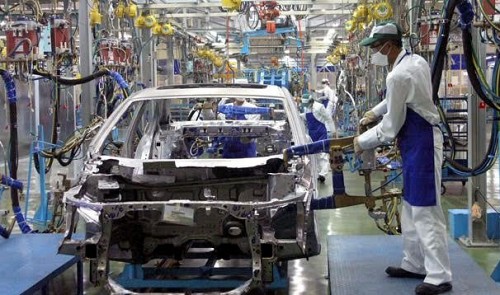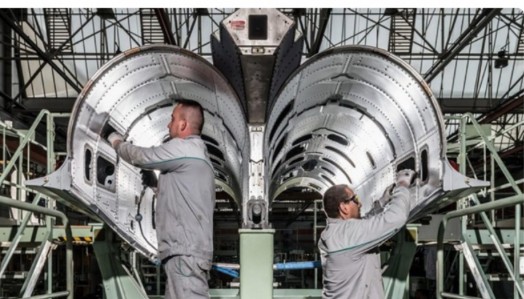Vietnam eyes auto industry safeguards against cheap imports
Vietnamese authorities have been asked to study possible measures to safeguard the country’s auto industry against growing competition from foreign exporters who enjoy increasingly relaxed import duties.

An automobile assembly line in Vietnam. Photo: Tuoitre
The request was made by Deputy Prime Minister Trinh Dinh Dung, who cited the influx of imported complete built-up (CBU) cars in recent months as a threat to the nation’s domestic car manufacturers.
In the first two months of 2017, Vietnam imported 5,714 CBU cars from Thailand, totaling over US$110 million in turnover, according to the General Department of Vietnam Customs.
As a member of ASEAN, or the Association of Southeast Asian Nations, Thailand currently enjoys a tariff of only 30 percent on CBU car exports to Vietnam, a ten-point reduction from 2016.
The two countries are both signatories to the 2009 ASEAN Trade In Goods Agreement (ATIGA), according to which the import tariff of motorized vehicles originating from ASEAN countries into Vietnam will be gradually reduced to zero in 2018.
According to the Vietnamese Department of Export-Import Tariffs, this tax reduction is responsible for a spate of cheap cars imported from Thailand and Indonesia into Vietnam since the beginning of 2017.
The Ministry of Finance has been asked to increase its monitoring of tax calculations and the origin of imported cars to prevent tax avoidance by importers.
Technical barriers should also be set to ensure that cars failing to meet Vietnamese standards are barred from the market, the deputy prime minister stressed.
However, an official from the Vietnamese Ministry of Industry and Trade said the imposition of such safeguard measures would require a formal request from local auto businesses, followed by investigations into what damage cheap imports have actually caused local manufacturers.
A competition authority would decide on whether or not to take safeguard measures based on evidence gathered from the investigations, the official said./.
VNF/Tuoitre
Recommended
 Economy
Economy
